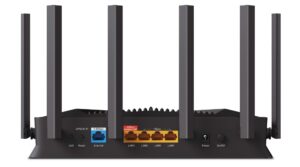Intel’s Core i7-14700K Benchmarked: More Cores, Higher Clocks
A Chinese reviewer has obtained a pre-production sample of Intel’s Core i7-14700K processor, which belongs to the Raptor Lake Refresh family, and tested it in a number of performance benchmarks for his review at Bilibili (via @9550pro). The processor, which got more cores and higher clocks, expectedly beat its predecessors, but what is even more noteworthy is that it can offer performance that is very close to that of the current flagship Core i9-13900K.
Intel’s upcoming Core i7-14700K processor will pack eight high-performance Raptor Cove cores clocked at 3.40 GHz – 5.60 GHz and 12 energy-efficient Gracemont cores, which is four cores more than the Core i7-13700K has. The new Core i7 ‘Raptor Lake’ refresh not only got slightly higher boost clocks, but also more cores, which will positively affect its performance in multi-threaded workloads. Meanwhile, the new CPU consumes more power.
| null | Configuration | Base Clock | Boost Clock | PBP | MTP |
| Core i9-13900K | 8P + 12E | 3.0 GHz | 5.80 GHz | 125W | 253W |
| Core i7-14700K | 8P + 12E | 3.40 GHz | 5.60 GHz | 125W | 260W |
| Core i7-13700K | 8P + 8E | 3.40 GHz | 5.40 GHz | 125W | 253W |
Indeed, the Core i7-14700K, which the reviewer calls ‘Core i7-13700KS’ to avoid problems with Intel, in CPU-Z multi-threaded benchmark by around 20% and in Cinebench R23 multi-threaded test by approximately 14%.
Due to higher clocks and increased number of cores, the upcoming processor also outperforms its predecessor in games.
While the reviewer does not compare the Core i7-14700K to the current flagship Core i9-13900K, it has the same configuration of cores (eight high-performance and 12 energy-efficient cores) and very close frequencies (the Core i9-13900K has 200 higher boost clock of 5.80 GHz). Therefore, performance of the new Core i7-14700K will be very close to that of the Core i9-13900K.
Meanwhile, Intel’s next-generation flagship Core i9-14900K and special-edition Core i9-14900KS will have boost clocks of 6.0 GHz and 6.20 GHz, respectively. As a result, performance difference between the most expensive Core i9 parts and moderately priced Core i7 CPUs will likely be negligible in most cases.















